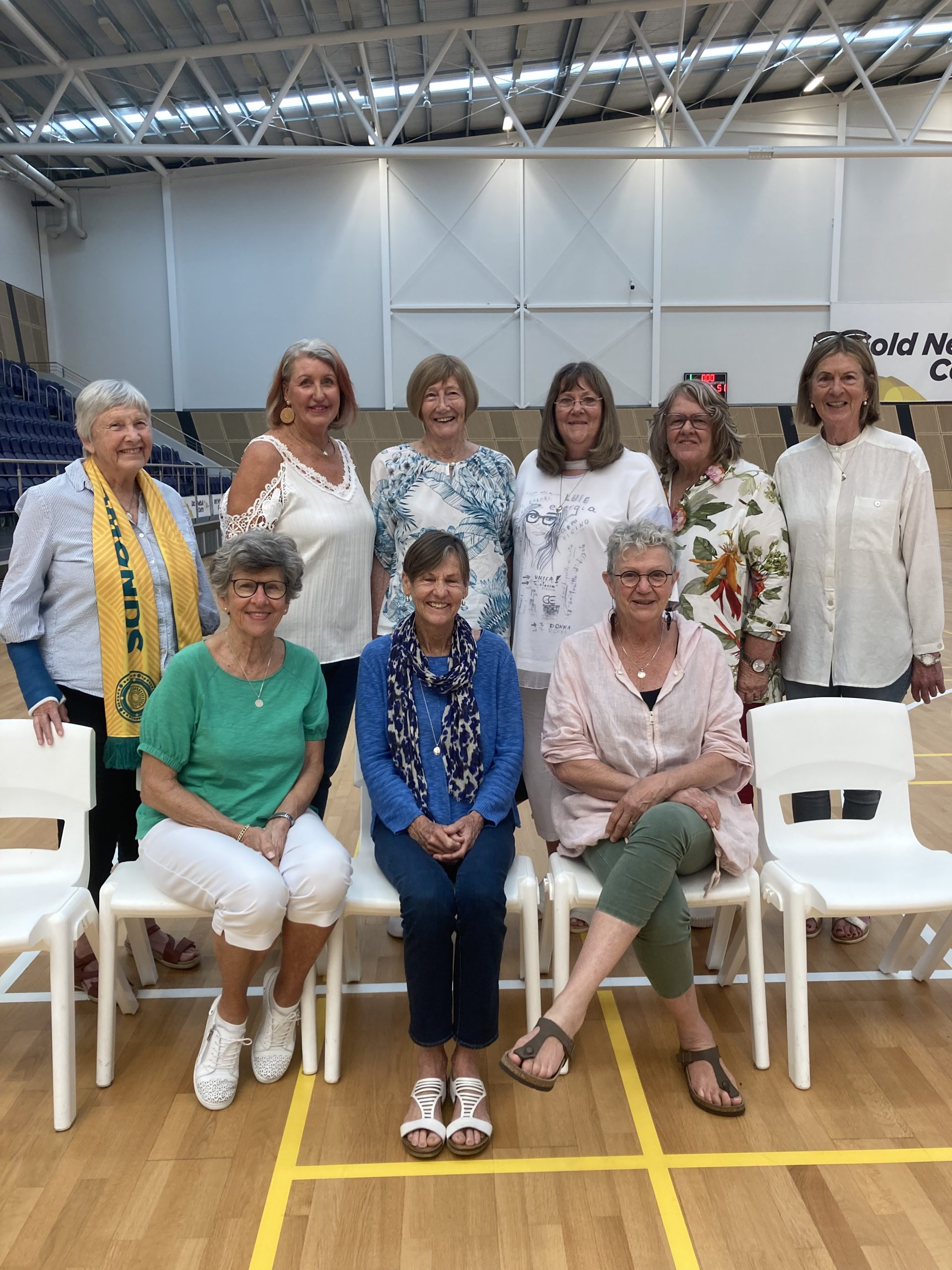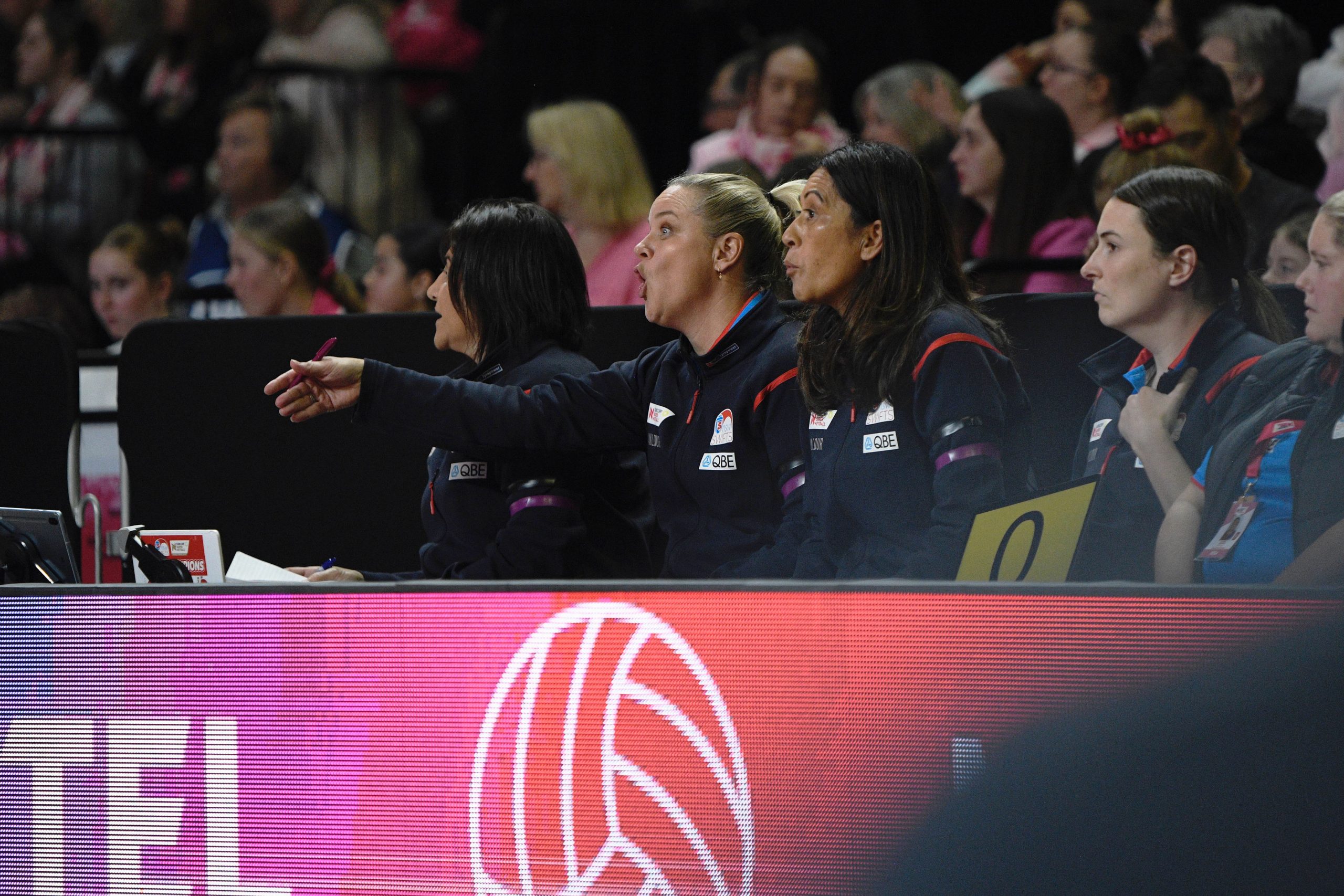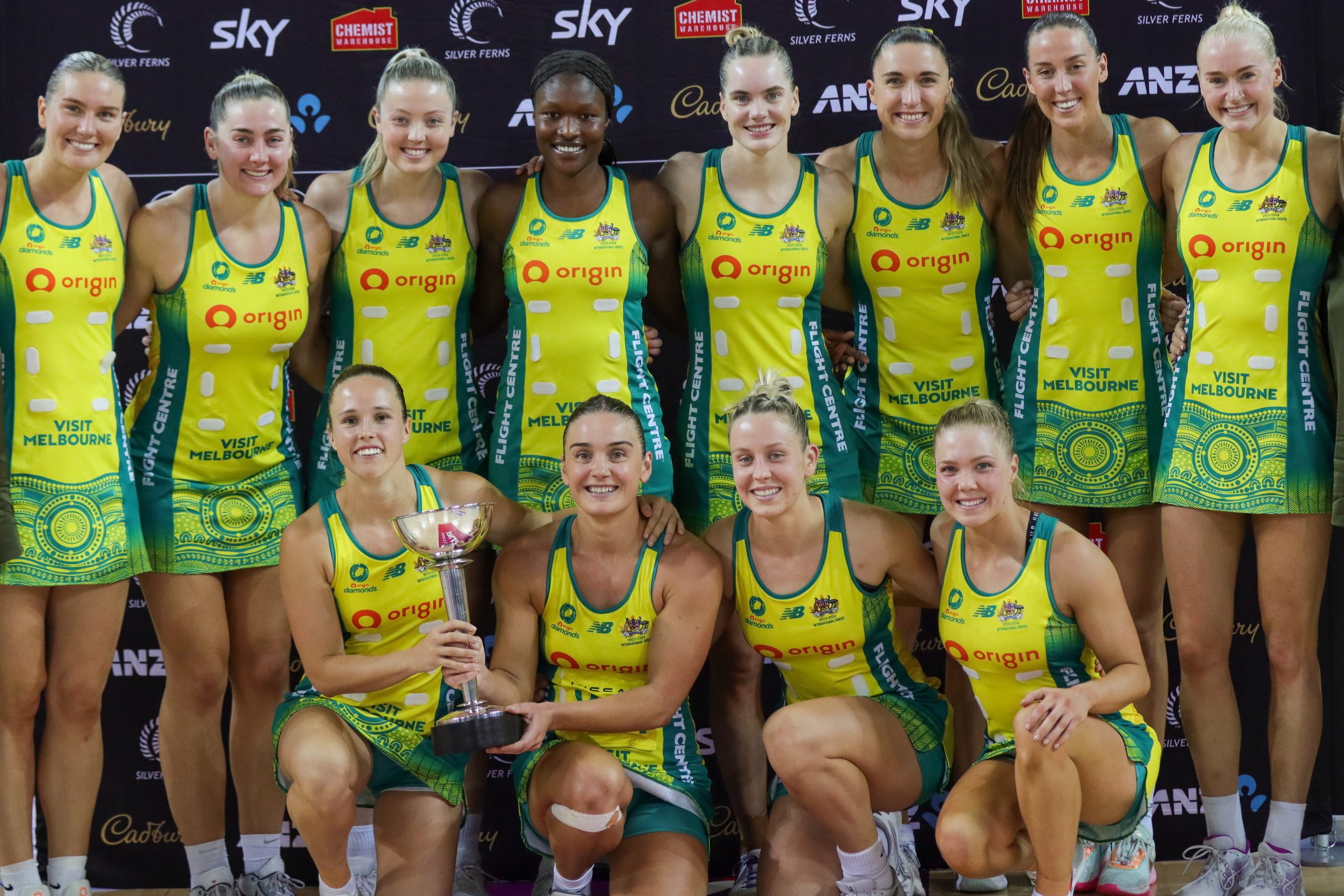There’s a small group of women who attend every Super Netball match in Perth. They don’t stand out in the crowd, but watch avidly, then over a meal and a glass of good red, analyse every part of the game. They know what they’re talking about, as they are all members of the 1971 World Tournament winning Diamonds. They feel very much part of the sisterhood – despite that rebranding long after their retirement – who’ve helped build the game in Australia.
Standing outside RAC Arena before the match gives each of them a great sense of achievement. With netball very much an amateur sport in 1971, the team played in an era when many women had to resign from their jobs after marriage, or who rarely worked outside the home while rearing children. However, not only were these women some of the founders of the professional era of netball, but they were part of a much wider revolution.
Former captain of the 1971 national team, Gaye Teede, said, “It’s a shared passion for us. As females, our mother’s generation didn’t have their own little world, their own interests. They might have been in the canteen. But we were challenging the barriers – we were some of the first women to do things for our own wellbeing.
“The community now has a much wider appreciation for women’s sport, and a desire for more of it. Once it went to television, things changed. Before that, the only people who went to netball had some kind of connection to it, like a family member.
“Now we get an absolute buzz when we stand outside the Arena and see the hordes of people going in, wearing their Fever green. And it’s not just the women – we love to see the number of males and kids who turn up too.
“There’s such a sense of pride and joy, because we worked so hard to get here, and it’s been evolution over time. We reflect and look at the progress we’ve made.
“We were part of a sporting generation taught to be compliant. We responded to that, and instead of hiding under a tree we decided to do something better than what we had.
“And collectively we’ve been part of getting ourselves a wonderful national league, and a good domestic and international programme.

The 1971 and 2024 Australian Netball Diamonds. Image Jenny Sinclair
The Hall of Famers
Like Teede, Elsma Merillo has been inducted into the WAIS Hall of Champions and the WA Netball Court of Champions. And while the duo had outstanding playing careers for state and country, their national recognition in Netball Australia’s Hall of Fame also acknowledges the decades they’ve spent shaping netball’s place in the sporting world.
At wing attack and centre, Teede was a natural born leader, captaining Australia to its second World Tournament title in 1971. A powerhouse on court, Teede returned to the national team seven years later after raising twins, was named vice-captain and helped Australia to a three-way tie for first place at the 1977 edition – her third and final event after a serious knee injury. Since then, her lengthy career, including stints coaching the Australian team and the Under 21s, has been pivotal in netball’s growth.
She remembers a time working at the Australian Institute of Sport with her former national coach Wilma Shakespear. The pair were called into a meeting and asked what netball most needed to grow.
Teede remembers, “Without even thinking we said, ‘A national league of substance, because at the time we were just experimenting with Esso, and we need a domestic international series.’
“No one at home had ever seen the national team perform. No one knew us, because we’d only competed overseas, other than a match in Perth in 1967.”
Pharmaceutical company Johnson & Johnson had approached the AIS wanting to invest in netball, Shakespear and Teede were listened to, and so the first test series played in Australia was born in the late ’80s.
Merillo was another of the five Western Australians who made up half of the 1971 Australian team. Brilliant in either shooting role, Merillo received her first national honours as a 16 year old, although age restrictions prevented her from touring New Zealand.
She earned five Australian All Star selections, competed at two World titles and also briefly captained Australia. Merillo retired to start a family, but later returned to state level netball after each birth of her first two children.
For many years Merillo worked tirelessly as a coach and administrator at state and national level, and is still an integral part of Netball Australia’s History and Traditions Advisory Group.
With Netball Western Australia celebrating its centenary this year, Merillo has been part of a small working group that’s mounted an exhibition of the 1971 team’s memorabilia in Perth’s Gold Netball Centre.
Items include rarely seen action photos, and the bright yellow walking out suit that was worn with hat, gloves and handbag. But what has delighted the 1971 team most is precious footage of them in action, unearthed by statistician Todd Miller and emailed to each member.
Merillo remarked, “That was a remarkable find. We played in an era before netball was televised, so for some of our team, it’s the first time they’ve ever been able to watch themselves in action.”
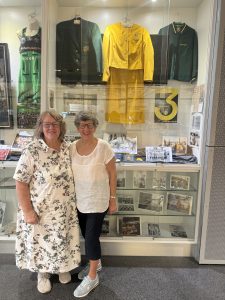
Elsma Merillo and Gaye Teede with the 1971 Australian netball team display. Image Jenny Sinclair
The 1971 Australian team
Coach: Wilma Shakespear
Manager: Marjorie Ritchie
Athletes: Terese Delany, Stella Gollan, Margaret Gollan, Elsma Merillo, Ricky Pyatt, Noela Routley, Cheryl Sidebottom, Annette Simper, Gaye Teede (captain), Anne Walker
Talking to Merillo and Teede gives some insight of just how far netball has travelled since their 1971 triumph. Back then, the Australian team was selected based on form at the National Championships, and they didn’t meet as a playing group until a brief embarkation camp before heading to Jamaica.
Western Australia was at the peak of its netballing powers, and so half of the team hailed from Perth, combining with another four Victorians and a solitary member from New South Wales. Historically, there were first ever sisters within the team, while Shakespear and manager Marjorie Ritchie were a daughter/mother combination.
In an era before strength and conditioning was officially on the radar, national coach Shakespear posted out fitness programmes, complete with stick figures, that players had to complete in their own time.
Merillo reflected, “In those days we all played differently in each state, and had our own styles, so that was the value of having a few blocks from each state.
“It helped that we had a lot of teachers, and specifically PE teachers in the team, so we could utilise what Wilma had provided with our own background and knowledge. Wilma even came over and joined us for a while, because half her team was here. But it was very much self motivated.”
Teede still has a small and priceless diary, outlining the team’s schedule. With long haul flights still in the future, it took eight weeks of travel to head to and from the World Championships. They hopped from country to country after leaving home in mid-December, missed a family Christmas and started the tournament on the last day of the year.
She said, “We had two days and a game in Auckland, then were only supposed to have a three hour stopover in Tahiti, but a problem with the plane meant we were there overnight. Then Mexico City – two days, and Jamaica for 23 days over Christmas.
“On the way home it was London, Paris, Madrid, Rome, Athens, Bangkok, Singapore in Sydney. Five days in London and two days in each of the rest.
“Team culture wasn’t something we spoke about then, but the amount of travel did give us time for bonding and togetherness.”
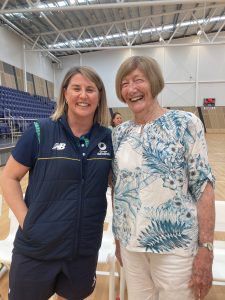
Current and former national netball coaches, Stacey Marinkovich and Wilma Shakespear. Image Libby Howe
With such limited time to train as a team, Teede said they were grateful for every court session they shared.
“Our time together was really productive. We were highly disciplined, and never questioned anything – but we were also part of a society that just did as we were told.
“The value of Wilma as a coach was immense – she was just 27, had a great analytical mind and initiated my ability to make sense of the game. She knew everyone’s strengths and she used them both on and off court.
“She was also ahead of her time in that normally the best seven were always out on court. But in our case in Jamaica she used two keepers to share the load – we needed Cheryl’s (Sidebottom) height to play on England’s Judy Heath, despite Cheryl being just 19.
“Judy was a handful – tall, a good jump and a high release, and we came from behind to beat England by one goal. Then Stella Gollan played on a more mobile New Zealand shooter, who were our other main rivals at the time.”
Merillo and Teede believe the new substitution rules are ‘wonderful’, because in their era, the selected team played out a full game unless someone was injured. Merillo said, “If you were on the bench you had no hope of getting on. It curtailed the coach’s choices as you were committed for 60 minutes. It was also hard on the bench players and especially the youngsters to get court time.”
As always, Teede led from the front – Merillo said she was one of the greats. “A fantastic captain who was always an example on court. She had such presence, and it was her ability to say, ‘Come follow me,’ in the big moments.”
Teede still remembers the immensity of winning all eight games and reclaiming the title, after New Zealand had defeated them on Australian soil in 1967. “We didn’t have a dais or confetti, but the other captains made a guard of honour and as the victorious captain I walked through it. There was huge pride as we listened to the national anthem.
“How do you measure that? I don’t know how you find those words, but the inner warmth, the buzz and glow stays with me still.”
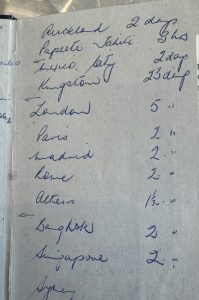
Travel schedule of the Australian team for the 1971 Netball World Tournament, courtesy of Gaye Teede. Image Jenny Sinclair
Currency and celebration
While much has changed in netball – the professionalism, resourcing, indoor courts, telecasts, crowds, and administration – some things stay the same.
In Teede’s words, netball is, “Still a game of attack and defence. Score and don’t let the opposition do so. It’s about the ball and what you do with it.”
Also remaining is the passion which has seen Merillo, Teede and other greats work tirelessly to make netball into one of the most loved and widely played sports in Australia. While Covid ruined the 50th year celebration of their 1971 success, it’s fitting that they’ve come together during Netball WA’s centenary year during the Constellation Cup.
Teede said, “You can’t measure the involvement we’ve had in the past, but you don’t forget it. These kinds of celebrations stir the memories and we are all very proud, especially when we get a chance to listen to the national anthem.
“The word ‘Diamonds’, that includes all of us as past players. What’s the next step? Getting us involved at the coal face, using our passion that’s built up with experience. Not forgetting our history. Els (Merillo) has done a wonderful job in that area, and it’s people like her who have got the passion and who are prepared to put in the hard yards.
“All these things transfer into life. Are you happy with what you’ve achieved? Can you look back with some pride? Self-worth is elusive at times, but netball has been a contributor at a time when women didn’t have anything much in the way of acknowledgement and lacked opportunity.
“And because netball was solely a female sport, it has very much led the way.”
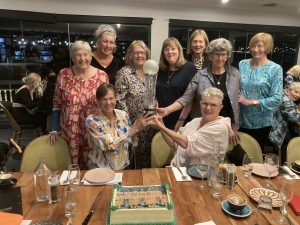
Members of the victorious 1971 Australian team unite and celebrate. Photo Libby Howe

